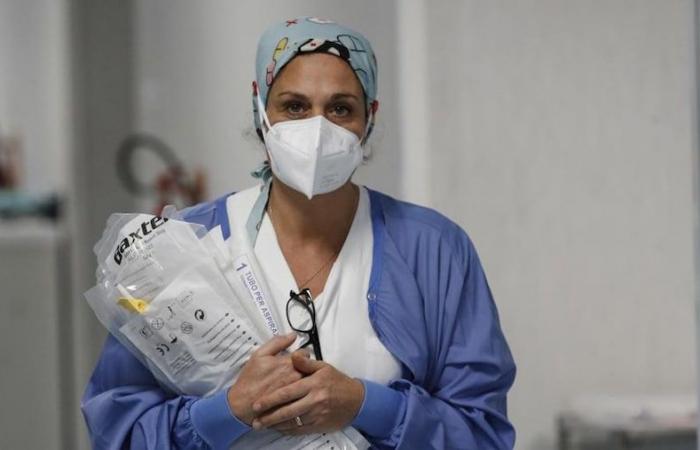Listen to the audio version of the article
The last taboo of measures related to the Covid emergency is ready to fall: the obligation to wear masks in hospitals and facilities that host frail and elderly patients. June 30th is the expiration of the last extension of the order of the Ministry of Health which is now ready to remove the obligation, leaving the decision to health directors on whether and where to recommend its use in the most risky situations. Meanwhile, despite the scorching temperatures, Covid is still circulating and indeed in recent weeks it has shown signs of recovery.
The new measures: no obligations, but recommendations
The new measures, in force from July 1st, signed by the Prevention Directorate of the Ministry of Health led by Francesco Vaia barring last-minute surprises, they will also send this last bastion of the Covid era into retirement, aiming instead to follow the line of the “paradigm change on responsibility” of both the citizen who will be recommended to wear a mask in hospital if he has respiratory symptoms and of those responsible for protecting the safety of the most vulnerable, concepts often underlined by Vaia in his public interventions. The new ordinance will thus aim to recommend the medical directors of healthcare facilities to allow staff as well as visitors to use the device in those areas where there may be more risks for hospitalized patients.
What does the ordinance that expires on June 30 provide?
Until now, the obligation to wear protective masks has been foreseen for workers, users and visitors of healthcare facilities in the departments that house frail, elderly or immunosuppressed patients. An obligation extended to workers, users and visitors of social-health and social-assistance facilities, including hospitality and long-term care facilities, nursing homes, hospices, rehabilitation facilities, residential facilities for the elderly, including those who are not self-sufficient. In other departments of healthcare facilities and in waiting rooms, the decision on the use of respiratory protection devices against the risk of Covid by healthcare workers and visitors remained at the discretion of the Health Directorates. A path that should now become the only one envisaged.
Covid on the rise despite the heat
The circulation of Covid in Italy has been increasing in recent weeks, recording a slight growth in cases, and this despite the hot season which should act as a brake on the virus. In particular, according to the latest monitoring, the Rt transmissibility index is at 1.15, slightly above the epidemic threshold, and in the last week there has been a +25% increase in infections which have risen above 2,600. However, the occupancy of beds in the medical area remains stable at 1.2% (751 hospitalized), as does the occupancy of beds in intensive care, equal to 0.3%. But if the impact on hospitals remains limited, epidemiologists nevertheless urge us not to underestimate the threat of Covid, whose numbers are also growing in the United States where Centers for Desease control (CDC) have recommended booster shots with updated vaccines for the entire population.






